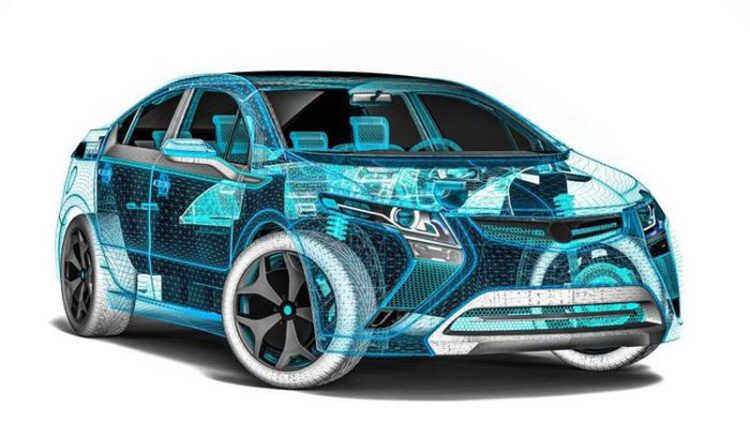Updating cars as fast as a smart phone

Work of researchers involved in the new Collaborative Research Center of KIT is aimed at updating cyber-physical systems, such as cars, as easily as a smart phone. (Photo:Bildagentur PantherMedia/solcansergiu)
Credit: Bildagentur PantherMedia/solcansergiu
New Collaborative Research Center for Software Methods at KIT – DFG funds excellent KIT research with around EUR 11 million.
Cyber-physical systems, such as vehicles, trains, airplanes, smart homes, or production facilities, combine electronic and mechanical elements with software. Development of these systems is highly complex due to the large number of dependencies among the components. “When a car’s wire harness is modified, the diameter of the cable duct also has to be changed,” says Professor Ralf Reussner, Spokesman of the CRC at KIT. This must be agreed upon by electrical engineers, software engineers and mechanical engineers. Agreement is also required when modifying the software. In industry, this is done at regular meetings of the experts from the disciplines involved. These processes are very tedious, slow, and error-prone, Reussner says. “It would be ideal to update a car as quickly and easily as a smart phone and to just buy and download new functions.”
New Methods for Accelerated Industrial Development
The CRC is designed to study software engineering methods to structure and organize development work relating to CPS. The resulting new CPS design methods are expected to accelerated, agile development cycles for cyber-physical systems. For this purpose, about 20 new positions for excellent researchers will be created at KIT.
CRCs are long-term research structures of universities, in which researchers collaborate in a multi-disciplinary program. CRCs are funded by the German Research Foundation (DFG). The funding period ranges from four to twelve years. The CRC “Konsistenz in der sichtenbasierten Entwicklung Cyber-Physikalischer Systeme” (consistence in the view-based development of cyber-physical systems) is the sixth CRC at KIT. Among the partners are TU München, TU Dresden, and the University of Mannheim.
More Information:
https://gepris.dfg.de/gepris/projekt/389000774?context=projekt&task=showDetail&id=389000774&
Media Contact
All latest news from the category: Automotive Engineering
Automotive Engineering highlights issues related to automobile manufacturing – including vehicle parts and accessories – and the environmental impact and safety of automotive products, production facilities and manufacturing processes.
innovations-report offers stimulating reports and articles on a variety of topics ranging from automobile fuel cells, hybrid technologies, energy saving vehicles and carbon particle filters to engine and brake technologies, driving safety and assistance systems.
Newest articles

Innovative 3D printed scaffolds offer new hope for bone healing
Researchers at the Institute for Bioengineering of Catalonia have developed novel 3D printed PLA-CaP scaffolds that promote blood vessel formation, ensuring better healing and regeneration of bone tissue. Bone is…

The surprising role of gut infection in Alzheimer’s disease
ASU- and Banner Alzheimer’s Institute-led study implicates link between a common virus and the disease, which travels from the gut to the brain and may be a target for antiviral…

Molecular gardening: New enzymes discovered for protein modification pruning
How deubiquitinases USP53 and USP54 cleave long polyubiquitin chains and how the former is linked to liver disease in children. Deubiquitinases (DUBs) are enzymes used by cells to trim protein…



